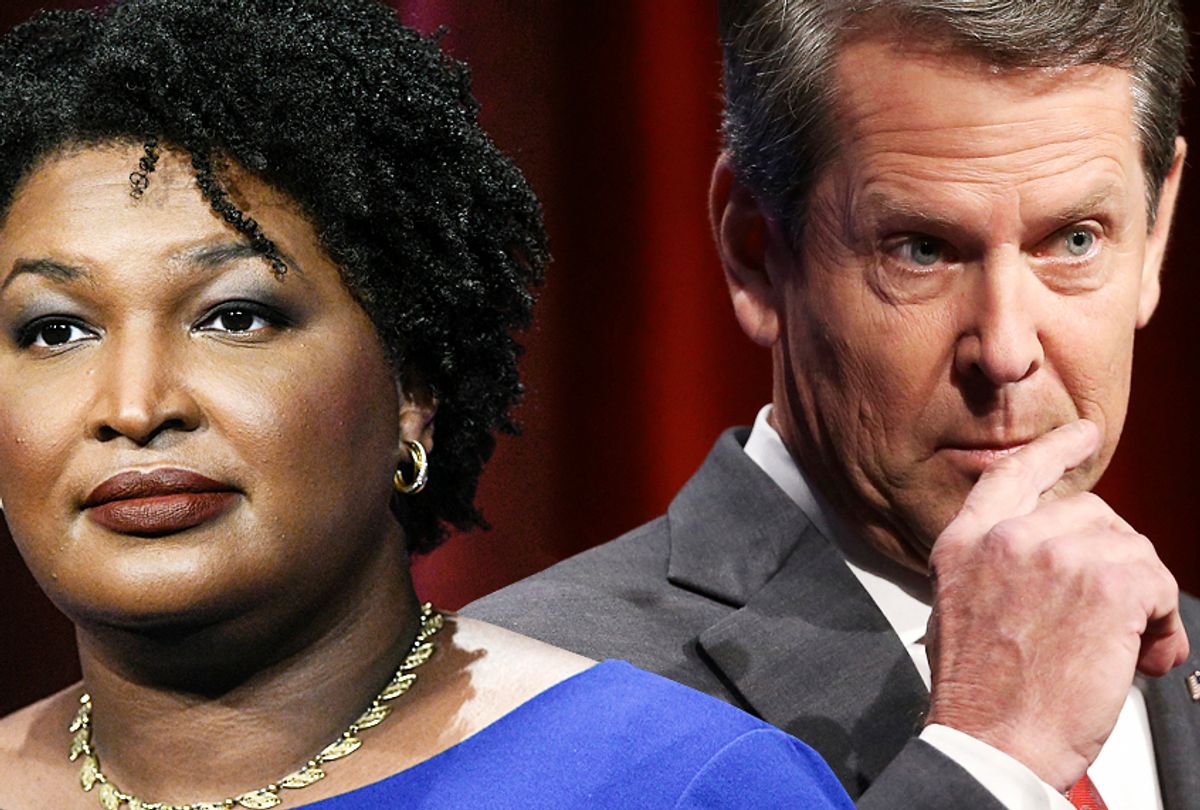Georgia Secretary of State Brian Kemp, who is also the Republican nominee for governor this year, is blocking 53,000 voter registrations ahead of his election.
According to records obtained by the Associated Press, 70 percent of the applications blocked were from African-Americans, even though the state's population is only 32 percent black.
The registration purge was the result of the controversial “exact match” program, which requires the voter registration application to have identical information as the person's information in the state's Department of Driver Services database or the Social Security Administration’s records. This means that any minor discrepancy, such as a missing hyphen or middle initial, could result in a rejection. The program has a long history of disproportionately affecting minority voters.
Kemp was previously forced to stop using the process after settling a lawsuit in 2017, but lawmakers enacted a statute last April that allowed the state to continue using “exact match” as long as it gave people 26 months to correct the discrepancies. Kemp previously allowed for only 40 days to correct discrepancies before dropping people from the voter rolls.
Kemp, who is in charge of elections in the state, is running against former state Rep. Stacey Abrams, who would become Georgia's first black governor if elected. Abrams and Democratic groups accused Kemp of “systematically using his office to suppress votes and tilt the election” and argued that the move disproportionately affects minority voters. In an appearance on “The Daily Show,” Abrams called Kemp “a remarkable architect of voter suppression.”
Kemp denied the charge, but AP notes that his office has purged 1.4 million voter registrations since 2012 and nearly 670,000 registrations last year through a process he calls “voter roll maintenance."
Kemp instead blames Abrams for the move, saying that the New Georgia Project group she founded in 2013 was “sloppy” in registering voters, AP reports, adding that his office claimed the group “did not adequately train canvassers to ensure legible, complete forms.”
Kemp's office insisted that “the law applies equally across all demographics” and said the disproportionate number of minority residents affected was the result of “the higher usage of one method of registration among one particular demographic group.”
Kemp and Abrams are in a dead heat in every poll released in the race. Two polls released this month, from Survey USA and Landmark Communications, both showed Kemp with a slight two-point lead, while a SurveyMonkey poll found the race tied at 43 percent each.
Georgia residents whose voter registrations are still pending have 26 months to address the issues and receive a single notice in the mail that their application was flagged. They can still vote in person if they provide a valid photo ID or cast a provisional ballot and then provide a photo ID in person.
This could become an issue, as WSB-TV reports that the state is seeing requests from absentee ballots from black voters at the highest level since Barack Obama's first presidential campaign in 2008.
According to the report, African Americans have requested 41.9 percent of the record number of absentee ballots this year, even though they make up just 30 percent of the electorate. Overall requests for absentee ballots are up 131 percent since the 2014 midterms.
“We could actually see Stacey Abrams become governor of Georgia at a time we’re seeing roughly half of the people who have turned in absentee ballots are people of color,” Democratic strategist Tharon Johnson told the outlet. “That’s a really good sign for Stacey Abrams.”

Shares